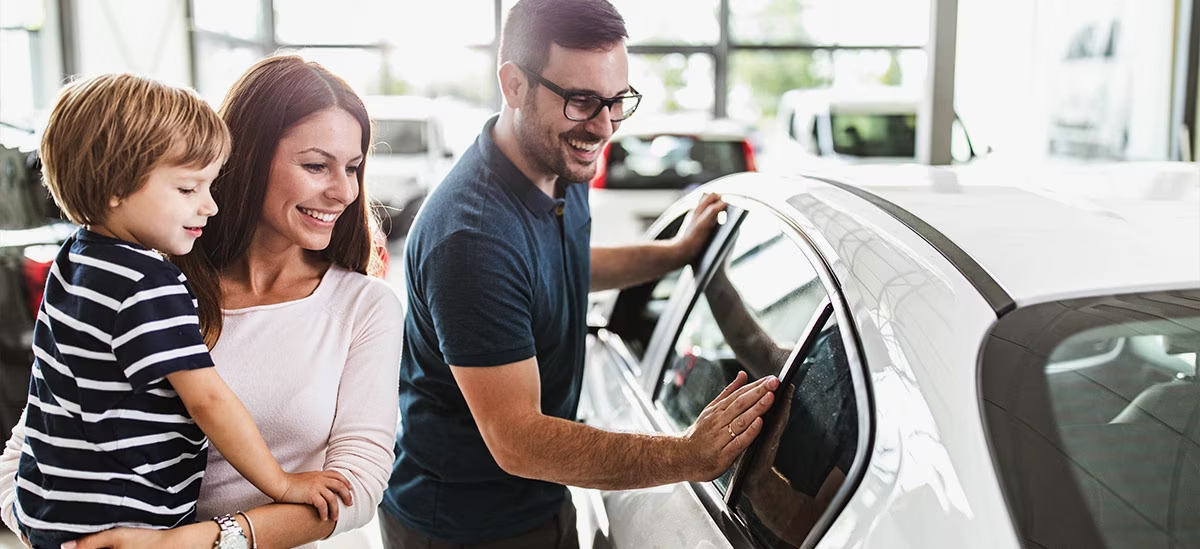Used automobiles give customers many advantages in today’s market. They are more affordable than new cars, making them more accessible. Used automobiles depreciate slower than new ones, so you can keep more of your investment.
Better than buying new cars
Despite the appeal of a new car, a used one might have several benefits. Used cars have lower insurance premiums, lowering monthly costs. Used cars may also allow you to afford a better trim level or more options than a new automobile.
Your Needs Research
Assessing Your Budget
Your used automobile purchase journey should start with a sensible budget. Take into account your monthly income, expenses, and financing choices. A set budget can help you focus your search and avoid overspending.
Determine Your Needs
Every car buyer has different demands and preferences. Think about what characteristics you need. Consider your lifestyle while choosing fuel efficiency, cargo capacity, or modern safety features.
Take into account
In addition to finances and needs, other considerations should affect your decision. Consider your demands, vehicle size, fuel efficiency, performance, and desired features and luxuries. By evaluating these variables beforehand, you can streamline your search and select a perfect car.
Finding Reliable Sellers
Private Sellers vs. Dealers
Used automobile sellers include dealerships and private people. Both solutions have merits and cons, so examine them carefully. Certified pre-owned vehicles from dealerships come with warranties and financing, while private sellers may offer lower costs but less transparency and protection.
Internet Platforms
The internet has changed how we purchase and sell used automobiles, with several platforms advertising all makes and models. AutoTrader, CarGurus, and Craigslist offer broad listings with search filters. Many dealerships have online inventory you may browse from home.
Reading Reviews and Ratings
Check a seller’s reputation before buying. Check customer reviews and ratings for trustworthiness and service. Look for red flags or repeated complaints that may suggest seller concerns.
Checking the Vehicle: Exterior
After finding a candidate, inspect the vehicle in person. Check the exterior for dents, scrapes, and rust. Ensure the tires, headlamps, and body panels are in good condition.
Interior Checkup
Enter the automobile and check its facilities. Check for tears or stains in the upholstery, test the infotainment system and climate controls, and test all safety features. Check the trunk and cargo for wear and damage.
Car Test Drive
The car test drive is probably the most important stage in buying. Assess the vehicle’s road handling, listen for strange noises or vibrations, and test acceleration, braking, and steering. A test drive will let you explore the automobile and decide if it’s right for you.
Learning Vehicle History
The Value of Vehicle History Reports
Get a vehicle history report before buying. These reports reveal the car’s accidents, repairs, and upkeep. Checking the car history can reveal flaws that could damage its reliability or value.
Looking for Accidents
Checking the car history data for accidents and damage is crucial. Look for collision repair or structural damage that could jeopardize car safety or performance. Additionally, watch for reoccurring concerns or patterns that may signal ongoing troubles.
Reviewing Maintenance Records
In addition to accident history, maintenance records might reveal the car’s overall care. Regular oil changes, fluid checks, and tire rotations are recommended. A well-maintained car will last longer and perform better.
Price Negotiation
Set Maximum Budget
Negotiate the car’s price with knowledge of its history and condition. Determine your maximum budget depending on research and finances. Stand firm but flexible in your talks and walk away if the seller won’t agree.
Market Price Research
Before negotiating, find out what similar vehicles cost locally. Kelley Blue Book and Edmunds publish price guides by make, model, year, mileage, and condition. Use this information to support your car offer and negotiate a reasonable price.
Strategies for Negotiating
Enter the pricing negotiation with confidence and a clear awareness of your budget. Take advantage of inspection shortcomings to negotiate a lower price. Be polite but assertive, and leave if the seller won’t negotiate.
Finalizing Purchase
Reviewing Paperwork
After settling on a price, study the documentation and complete the transaction. Read and comprehend the sales contract, title transfer, and any supplementary warranties or agreements. Ask the vendor or a lawyer if you have any questions.
Complete Transaction
Sign the paperwork and pay the seller after studying it. Title transfer and registration may require a visit to a local DMV or licensing agency. Following all laws will ensure a seamless and legal transaction.
Getting Insurance and Registration
Before driving, get your new car insured. Contact your insurer to add the automobile and guarantee enough coverage. Register the vehicle in your name and get license plates at your local DMV. Insurance and registration are done, so enjoy your new used automobile.
Maintaining Your Used Car Regular Service and Maintenance
Regular servicing and maintenance are necessary to keep your used car running properly. Regular oil changes, tire rotations, and brake inspections prevent wear and extend vehicle life. Avoid costly repairs by fixing minor flaws and warning indications immediately.
Lifespan Extension Tips
There are various ways to extend the life of your secondhand car beyond normal maintenance. Avoid aggressive driving, clean and preserve your car, and park it in a garage or covered location. You may maximize investment lifetime and performance by being proactive.
Repairs and Issues
Used vehicles require occasional repairs despite your best efforts. Go to a trusted mechanic or service center with experience on your make and model for mechanical or maintenance difficulties. Never disregard warning signs or symptoms—addressing them quickly will prevent further harm and costly repairs.
Conclusion
With the appropriate attitude and preparation, buying a used automobile in 2024 can be beneficial. Research your demands, identify trusted vendors, inspect the vehicle, and understand its history to make an informed selection and drive away with a great vehicle that suits your needs and budget. To ensure a pleasant ownership experience, negotiate the price, study all papers, and prioritize upkeep.
FAQs
Should I buy from a dealership or a private seller?
Both approaches have merits and cons. While private sellers may offer cheaper vehicles without warranties, dealerships offer certified pre-owned vehicles with warranties.
How can I verify the used car’s reliability?
Before buying, inspect the vehicle, review its history, and have a competent mechanic inspect it.
How should I handle used automobile difficulties after purchase?
Contact the seller to discuss options and consult a lawyer or consumer protection organization if needed.
Can I haggle on a used car?
Buying a used automobile usually involves haggling. Do your research and be ready to leave if the seller won’t negotiate.
A vehicle history report: what should I check for?
For transparency and reliability, check past accidents, repairs, maintenance records, and odometer readings.



